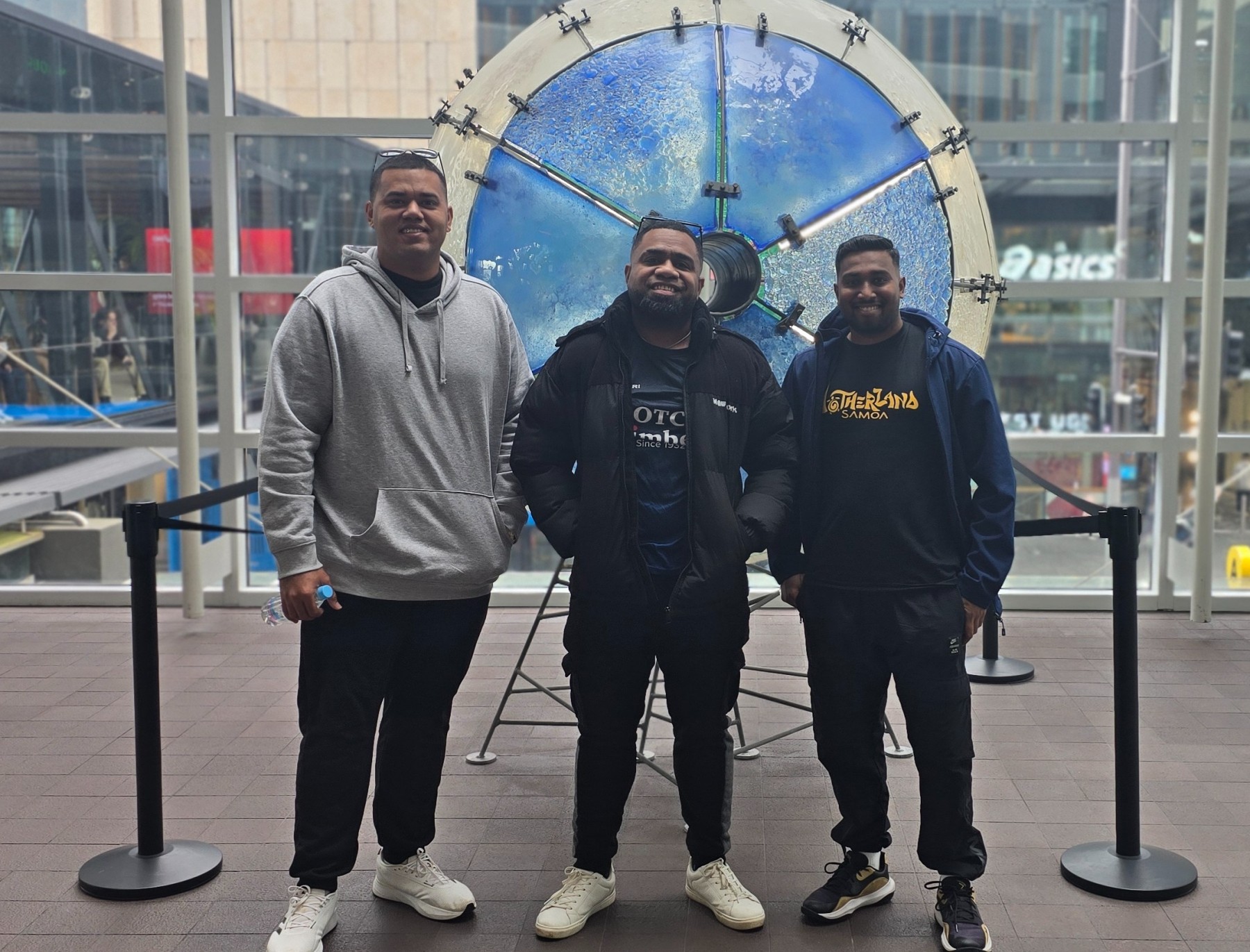Today, I live in New Plymouth, Aotearoa New Zealand, while my family remains in Fiji. I recently worked as an Assistant Research Fellow at the School of Physiotherapy and Va’a o Tautai Centre for Pacific Health at the University of Otago. Currently, I work as a Physiotherapist with TBI Health. My research work focuses on improving rural health outcomes for Pacific peoples. It explores how Pacific people working in rural meat processing experience accessing health services, and the impact of work on their health.
Growing up in Fiji, I was immersed in my language and culture through conversations, community gatherings, church, and everyday life. It was something I lived, not something I had to think about. However, since moving to Aotearoa, especially living on my own in New Plymouth, I’ve had to become much more intentional about staying connected to my identity.
I continue to nurture my language through calls with family, listening to Fijian music and hymns, and by participating in cultural practices in whatever way I can. Even in moments of silence, I find comfort and grounding in the words and values I carry with me.
Being part of the Pacific health space has strengthened my connection to our wider community. I’ve come to realise that our languages and cultures are not only beautiful, they are powerful tools of resilience, healing, and belonging.
One of the biggest challenges I’ve faced is the physical and emotional distance from home. In Fiji, the language surrounded me. Here, I don’t hear it every day, and at times I’ve felt that disconnection deeply.
There’s also a certain pressure that comes with being Pacific in professional spaces, to be a representative, to “get it right,” and to be fluent in both cultural and academic languages. I’ve had moments where I questioned whether I was doing enough, or whether I was “enough” in terms of language and identity.
Over time, I’ve come to understand that language and identity are not fixed, they are ongoing journeys. I don’t have to be perfect. What matters is that I continue to learn, speak, share, and honour the values that come from my roots.
“Na noqu vosa me na tekivu mai vale – My language starts at home”
This theme couldn’t be more relevant. “Na noqu vosa me na tekivu mai vale” is a powerful reminder that language is not something we only use in formal or ceremonial settings, it starts in the home, in our daily lives, in our relationships.
Even though I live away from my family, my language still lives in me. It’s in the stories I carry, the faith I practice, the songs I sing, and the values I apply in my work and personal life. “Home” doesn’t just mean a physical place, it also means the emotional and cultural space where language is alive.
Professionally, I see how much it matters when Pacific people hear their language in clinical and research settings. It’s more than communication, it’s connection. It’s identity. It’s dignity. That’s why this theme is more than symbolic, it’s a responsibility.
I hope that Pacific languages continue to thrive, not only in homes but also in schools, workplaces, and public life. I want our people—especially our youth, to feel confident and proud of their language, even if they are still learning.
I hope to be part of building spaces in Aotearoa where our languages are not just welcomed, but woven into the fabric of how we work, learn, heal, and lead. Through my research, clinical work, and everyday life, I want to model what it means to honour our language, even from afar.
Most of all, I hope that my journey shows others that being Pacific is not about how fluent you are, but how committed you are to respecting, participating, and staying connected. Our languages are treasures, and when we speak them, we honour our ancestors, and shape the path for the generations to come.
Vinaka vakalevu, and happy Fiji Language Week 2025.

